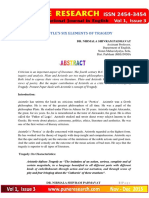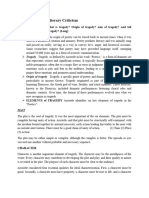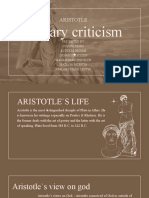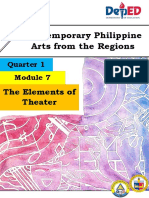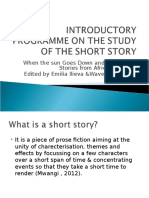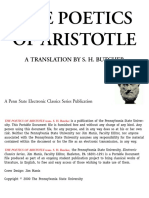0% found this document useful (0 votes)
11 views4 pagesLiterary Critism & Theory 1st
Aristotle's Poetics outlines key elements of tragedy, including plot, character, thought, diction, song, spectacle, and catharsis. He emphasizes the importance of a well-structured plot, realistic characters with tragic flaws, and the exploration of moral themes. Aristotle's framework remains influential in the study and creation of tragic literature and theater.
Uploaded by
mashahidhussain08Copyright
© © All Rights Reserved
We take content rights seriously. If you suspect this is your content, claim it here.
Available Formats
Download as DOCX, PDF, TXT or read online on Scribd
0% found this document useful (0 votes)
11 views4 pagesLiterary Critism & Theory 1st
Aristotle's Poetics outlines key elements of tragedy, including plot, character, thought, diction, song, spectacle, and catharsis. He emphasizes the importance of a well-structured plot, realistic characters with tragic flaws, and the exploration of moral themes. Aristotle's framework remains influential in the study and creation of tragic literature and theater.
Uploaded by
mashahidhussain08Copyright
© © All Rights Reserved
We take content rights seriously. If you suspect this is your content, claim it here.
Available Formats
Download as DOCX, PDF, TXT or read online on Scribd
/ 4






















